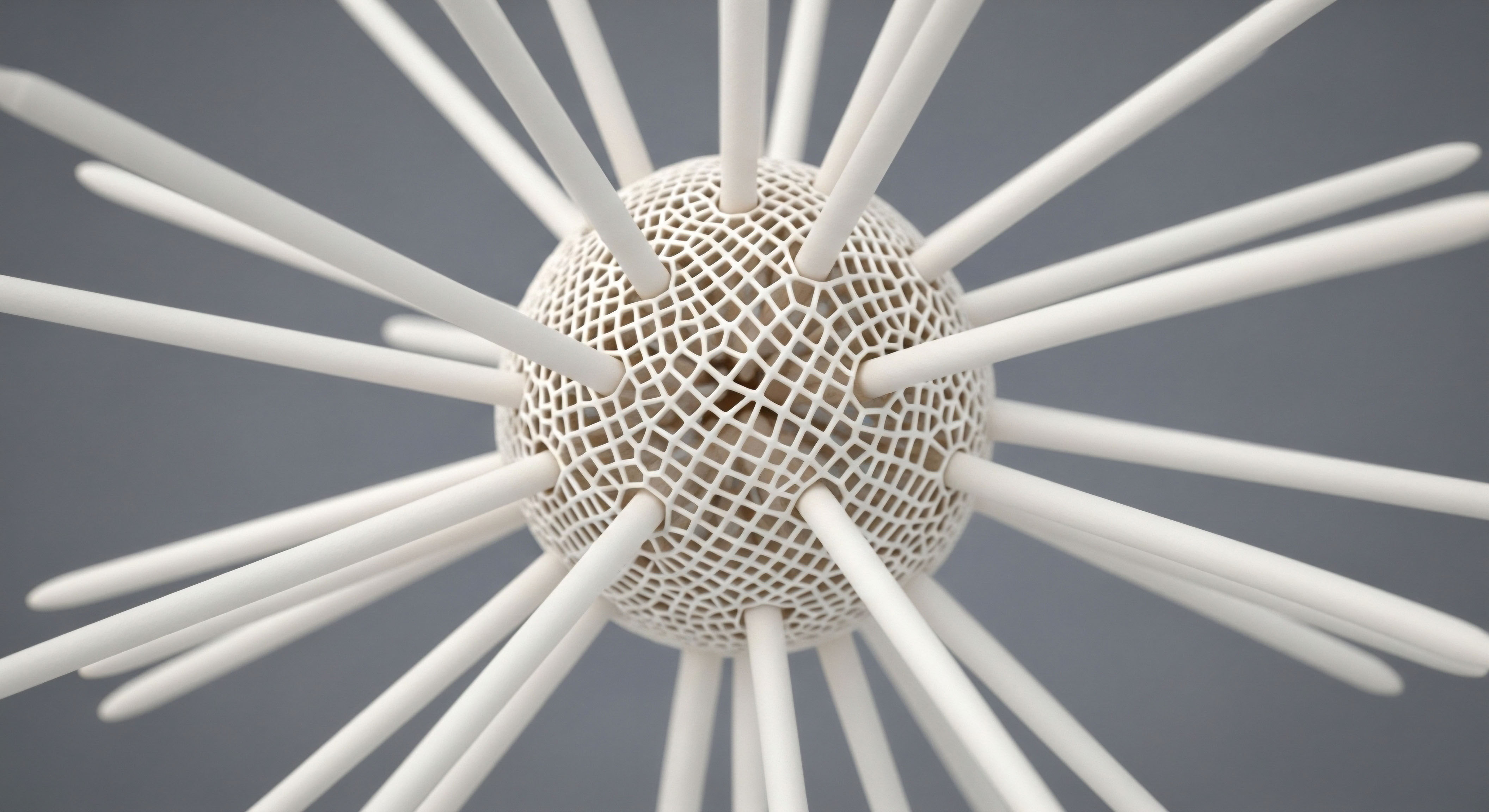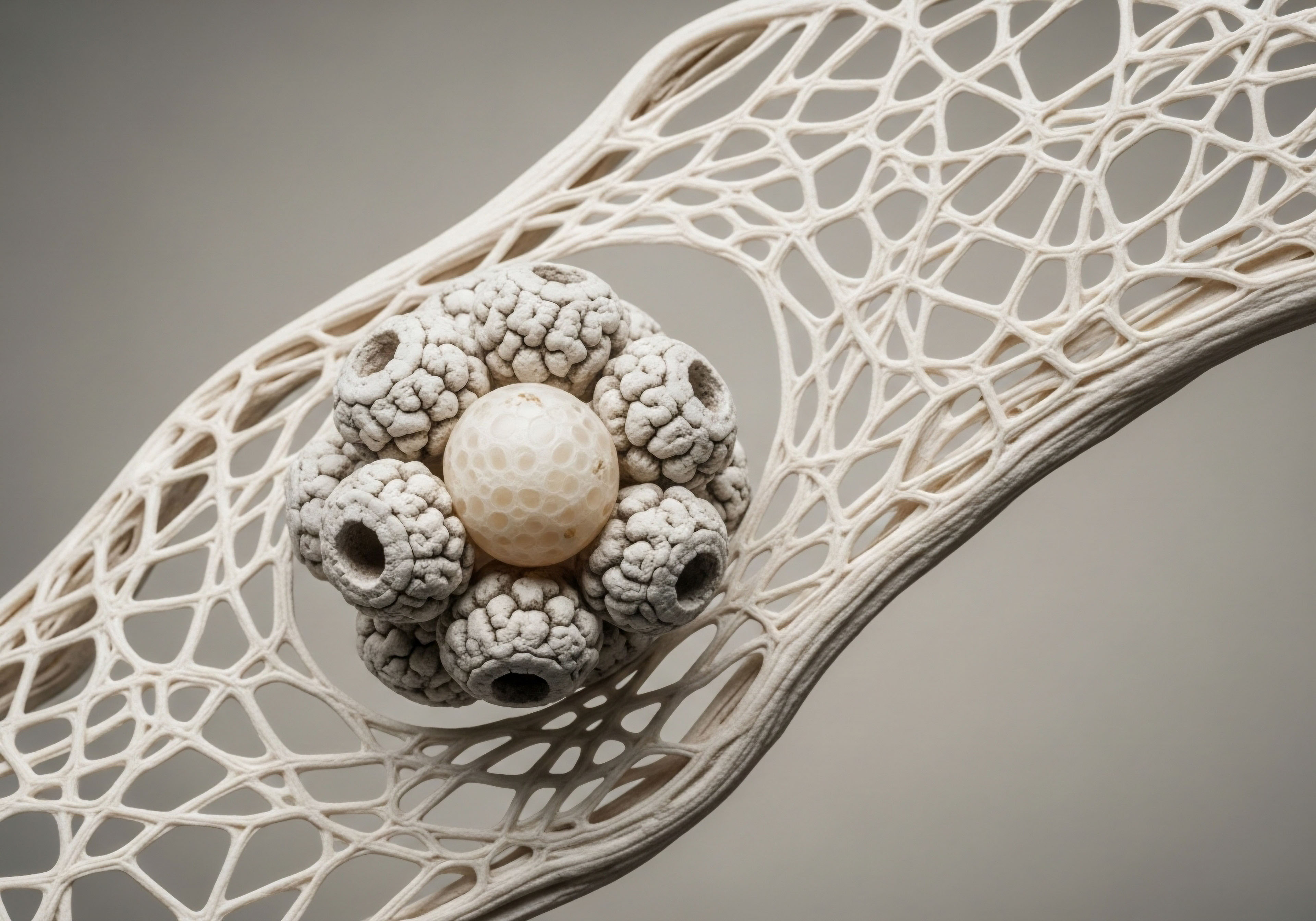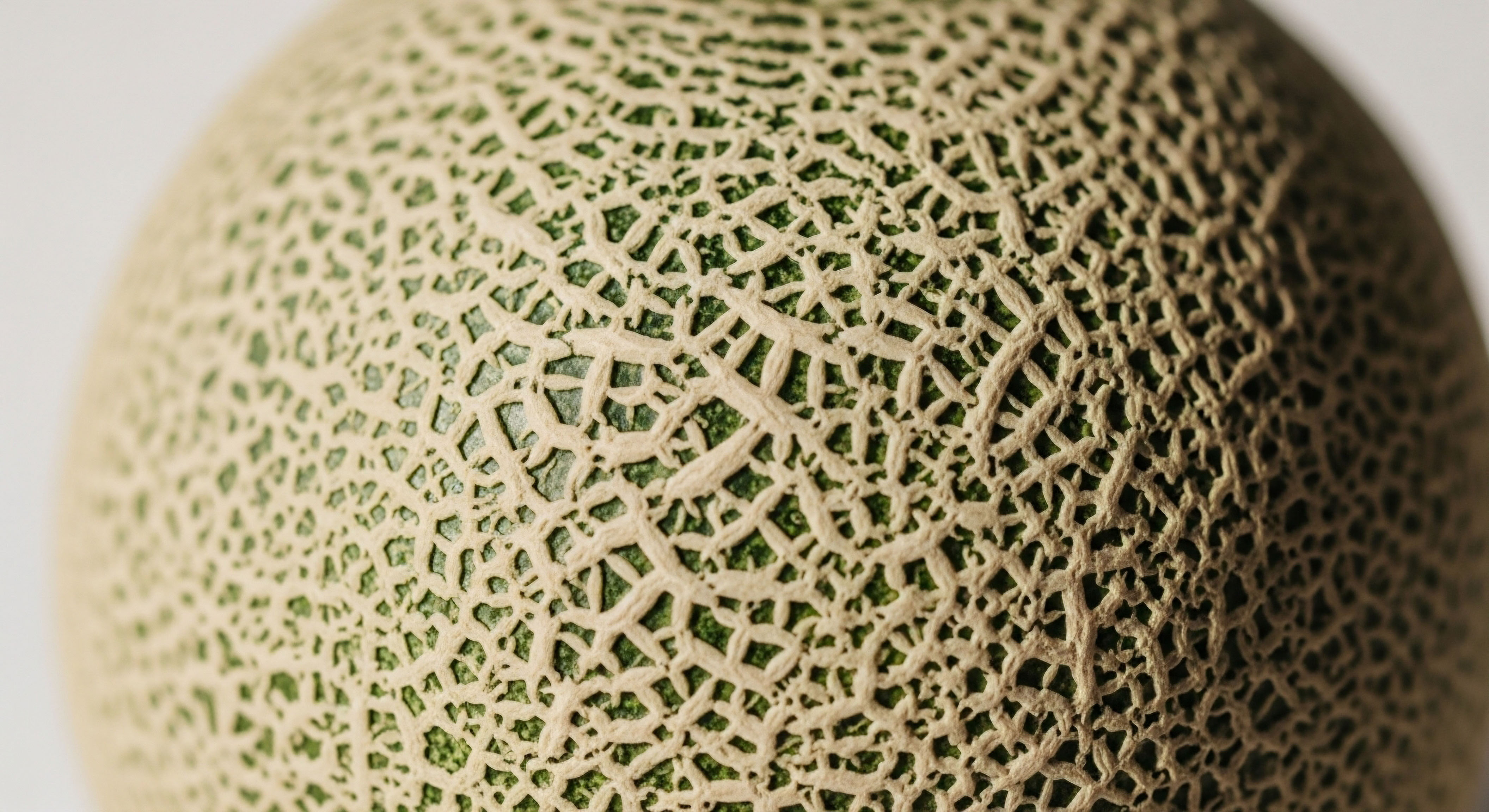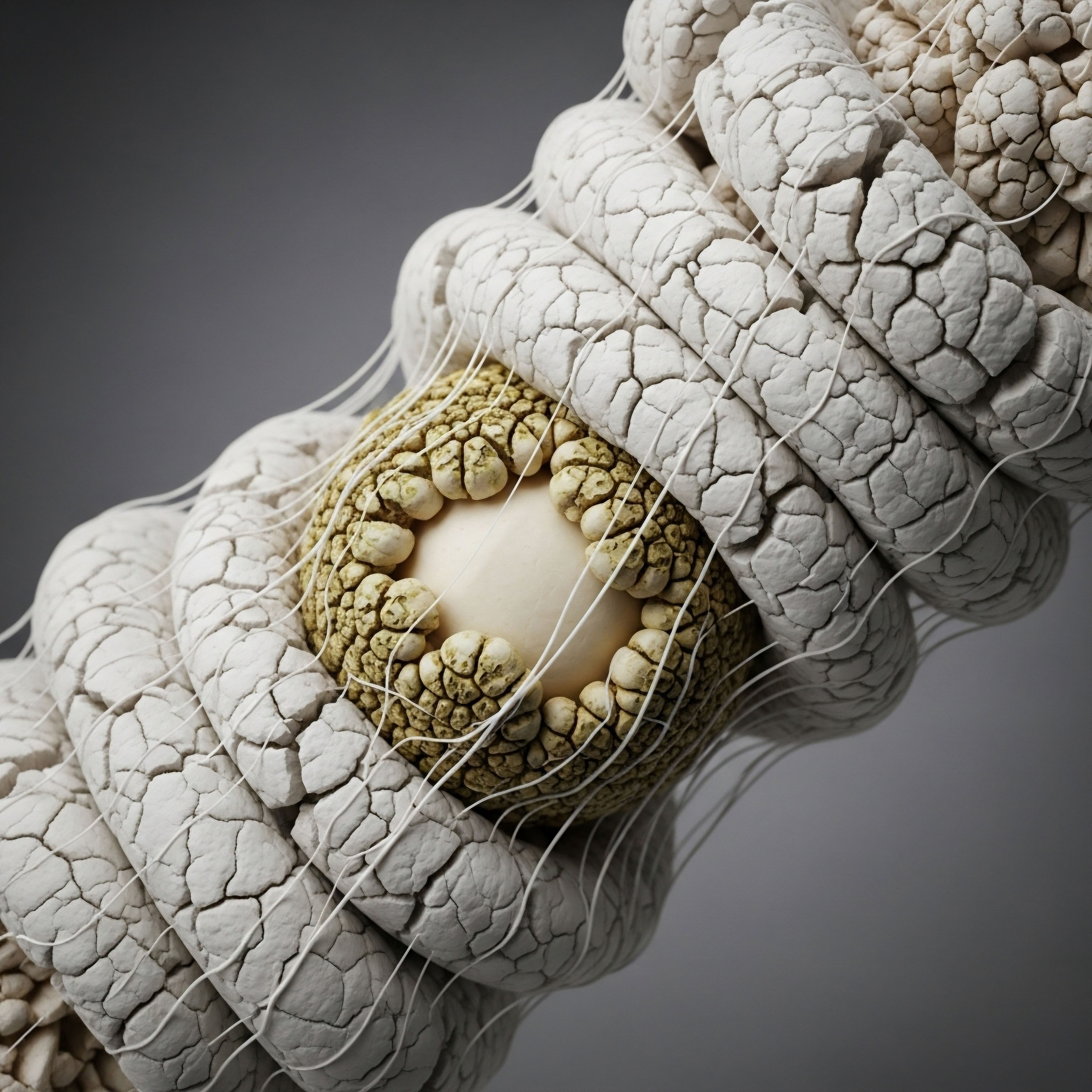

Your Relationship with Stress Is a Design Problem
You feel it. A persistent, low-frequency hum of demand that depletes your reserves. The day begins with a deficit and ends with an overdraft. This state of being, this constant drain, has been normalized as the price of ambition. Society taught you to manage this sensation, to cope with it, to endure it.
This is a profound miscalculation. The depletion you register is the direct result of a system receiving the wrong inputs. Your biology is reacting precisely as it was designed to, signaling a corrosive imbalance through fatigue, mental fog, and a muted sense of vitality.
The architecture of a high-performance life is built upon the intelligent application of force. Your body and mind are adaptive systems, designed to strengthen in response to targeted challenges. The pervasive, chronic static of modern life provides no such signal. It is an incoherent, grinding noise that degrades cellular machinery and disrupts hormonal cascades.
The alternative is a state of deliberate, controlled stress. This is the application of acute, purposeful demands that trigger powerful adaptive upgrades throughout your biology. The objective is to graduate from being a passive recipient of environmental noise to becoming the architect of your own biological resilience.
A system exposed to the wrong signals will inevitably fail; a system given precise, challenging inputs will rebuild itself into something stronger.
We have been conditioned to view all stress through a single lens, one of attrition and damage. This is a limiting belief. There are two distinct categories of biological stress. One is distress, the relentless, untargeted pressure that breaks you down. The other is eustress, a positive and motivating force that builds you up.
Acknowledging this distinction is the first step in reclaiming your energy. You can design a life where stress is a potent tool for growth, a catalyst for heightened performance and sharpened cognitive function. This is the foundational principle of personal optimization.


The Principles of Biological Architecture
Your biology operates on a clear set of rules. To architect a superior state of being, you must understand and apply these rules. The core mechanism is a principle known as hormesis. Hormesis is a biological phenomenon where a beneficial effect results from exposure to low doses of an agent that is otherwise toxic or damaging at higher doses.
Think of it as a precise calibration signal. A massive, uncontrolled electrical surge would destroy a sensitive piece of equipment. A series of small, calculated charges, however, can be used to tune its performance to a higher level. Your body is that high-performance equipment.
Chronic distress is the uncontrolled surge. It elevates cortisol and adrenaline without a purpose, leading to systemic degradation. Architected eustress is the calibration charge. It introduces a sharp, temporary demand that activates a cascade of protective and regenerative processes. This is the body’s innate anti-fragility program.
When you apply a hormetic stressor, you are sending a direct command to your cells ∞ “The environment is demanding. Adapt. Become more resilient. Become more efficient.” This command triggers the production of proteins and enzymes that shield cells from future damage, improve metabolic function, and enhance cellular cleanup processes.

Hormesis the Operating System of Adaptation
To implement this protocol, one must distinguish between inputs that degrade the system and inputs that command adaptation. The goal is to minimize the former and strategically schedule the latter. This moves the operator from a state of passive endurance to active biological engineering.
- Chronic Degrading Input (Distress) ∞ Weeks of unresolved work pressure with poor sleep. This creates a sustained, catabolic hormonal environment.
- Architected Adaptive Input (Eustress) ∞ A 45-minute high-intensity strength training session. This produces a sharp, acute spike in cortisol and adrenaline that resolves quickly, signaling for muscle repair and metabolic upgrades.
- Chronic Degrading Input (Distress) ∞ Constant digital notifications and alerts, creating a fractured, reactive mental state.
- Architected Adaptive Input (Eustress) ∞ A three-minute cold plunge. This delivers a powerful nervous system shock, triggering a massive release of norepinephrine and training your body’s vascular and mitochondrial response.
- Chronic Degrading Input (Distress) ∞ Consuming processed, inflammatory foods throughout the day, taxing your metabolic and digestive systems.
- Architected Adaptive Input (Eustress) ∞ A period of intermittent fasting. This mild energetic deficit initiates cellular autophagy, a quality control process where cells clear out damaged components.


Activating the Protocols for System Recalibration
The moment to begin architecting your stress is signaled by the system itself. Brain fog, persistent fatigue, a decline in physical output, and a low tolerance for challenge are data points. They indicate that the system is overloaded with chronic, degrading signals and starved of acute, adaptive ones.
These are not moral failings; they are readouts from your biological dashboard. They are the prompt to intervene with a new set of commands. The application of these principles initiates a cascade of tangible performance upgrades.

The Performance Cascade of Deliberate Stress
The initial response to a hormetic protocol is immediate. A session of intense exercise or heat exposure leaves you with a feeling of clarity and alertness. This is the result of a recalibrated neurochemical environment. Within weeks, the deeper adaptations begin to manifest.
Research from the University of California, Berkeley, revealed that significant, brief stressful events caused stem cells in the brain to proliferate. Two weeks later, these new nerve cells matured and were directly involved in improving mental performance and learning. You are literally building a better brain by applying the correct dosage of stress.
The right amount of acute stress tunes up the brain, strengthens the connections between neurons, and improves cognitive performance.
The tangible results compound over time. Your capacity for work expands. Your resilience to unexpected challenges increases because you have systematically trained your nervous system to handle acute demands. The benefits are physical and cognitive. Moderate, controlled stress can stimulate the production of chemicals that give the immune system a short-term boost.
You will notice improved focus during demanding tasks and a more stable energy level throughout the day. This is the payoff. You have shifted the system from a state of passive decay to a state of active, continuous optimization.

You Are the Vitality Architect
The human body is the most sophisticated high-performance machine on the planet. It contains its own programming for repair, optimization, and enhanced resilience. For too long, we have ignored this innate capability, allowing the chaotic noise of the environment to dictate our biological state.
Understanding the principles of hormetic stress provides you with the operator’s manual. You now possess the ability to send clear, powerful signals to your own cells, commanding them to build a stronger, more capable version of you. The work is to intentionally design a life that contains the right challenges, at the right doses, to forge the biology you desire. This is the new frontier of personal agency.

Glossary

distress

eustress

hormesis

adrenaline

cortisol

chronic degrading input




